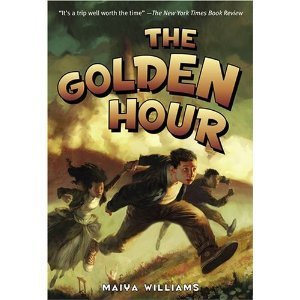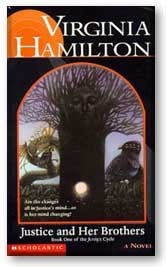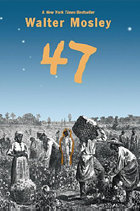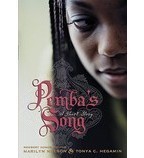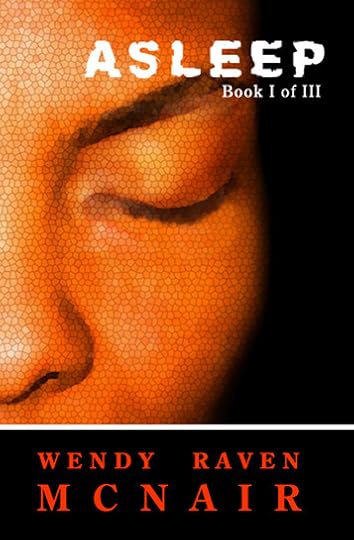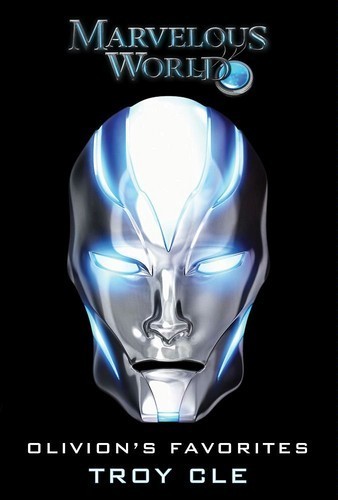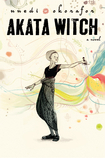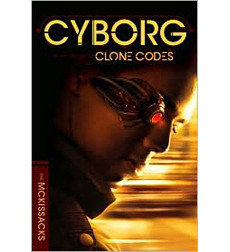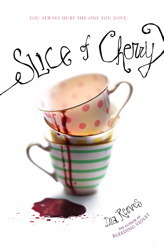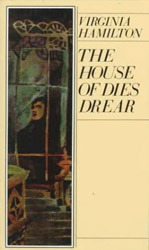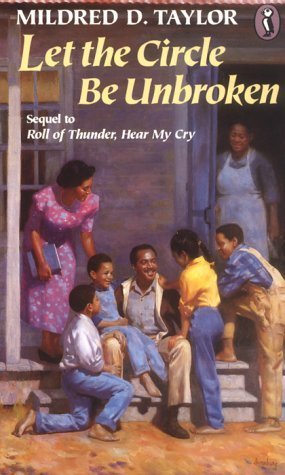Zetta Elliott's Blog, page 95
February 5, 2011
incentive
"Are you sure you're…fully human?"
I woke up with those words in my head this morning. Late last year I went off my medication just to see if my migraines would go away. They did, but now the original condition is untreated and that has led to many sleepless nights as of late. It may also have led to this novella, which is an interesting hypothesis: live with pain and write your best work. Right now I'm almost done Ship of Souls, and I am quite ready to go back on my medication. On Thursday I took a break between my two classes and checked Facebook; my cousin's young son, Kodie, had left a message on my wall:
Hi Zetta! This is Kodie. I was wondering if you have written any more of your book you told me about at Bethany's. I think about the book a lot and can not wait to read it! I have been playing lots of hockey and sledding on a big hill by my house.
Have a good dayKodie
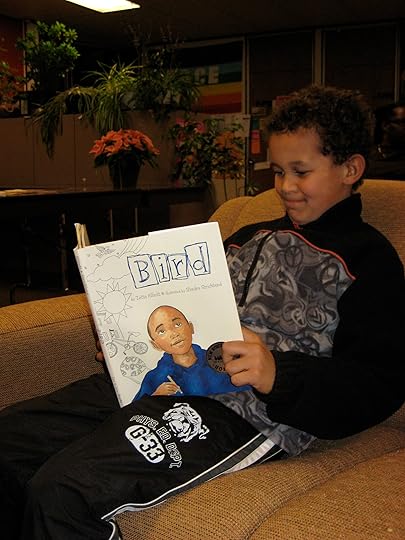 He has also started writing his own stories, and will be sending some my way. In exchange, I promised to finish the novella, print it as a book, and send him the very first copy. At ten, he's a bit young for this story (which my agent finds "scary"), but I love that he's excited about reading and writing. The way I feel right now, I think the laptop, hot water bottle, and I will be spending the day on the couch…testing that hypothesis!
He has also started writing his own stories, and will be sending some my way. In exchange, I promised to finish the novella, print it as a book, and send him the very first copy. At ten, he's a bit young for this story (which my agent finds "scary"), but I love that he's excited about reading and writing. The way I feel right now, I think the laptop, hot water bottle, and I will be spending the day on the couch…testing that hypothesis!








February 4, 2011
why we love The Rejectionist
There are so many reasons—her biting wit, her love of hobbits—but we most especially appreciate her commitment to being an ally. Do make sure you read her latest post on the marketing of African American authors in bookstores:
Publishing is a bunch of white people. (That's not negotiable, Author-friends. We bombed interviews at every one of those publishers, remember? And you KNOW when you are in the most diverse city IN THE F[***]ING WORLD, and you walk into an office that is the entire floor of a building, and every single person in that office is white except the receptionist, there is a PROBLEM.) Bookselling less so, and things are changing (at an admittedly glacial pace), but basically the people making the decisions about what gets published, and where it goes on the shelf, are going to be almost exclusively, if not exclusively, people who are not people of color. We do repeat this a lot? It's true? But people are still…ARGUING about it so apparently we have to. NEWS FLASH: THE PUBLISHING, IT IS NOT DIVERSE. And unsurprisingly, when a very undiverse group of people is making decisions for everybody, things tend to go horribly awry.








February 2, 2011
African American speculative fiction for kids
After Edi read my SLJ article, she suggested I compile a list of African American speculative fiction books for children. As usual, I enlisted the help of others, and below is the list Edi, Doret, Ari, and I compiled. If you have any suggestions, please leave a comment. I did not include speculative fiction titles that might appeal to teens—just those specifically published for young readers.
Speculative Fiction by US-based Authors of African Descent
1. Justice and Her Brothers by Virginia Hamilton (1978)
2. Dustland by Virginia Hamilton (1980)
3. The Gathering by Virginia Hamilton (1981)
4. Sweet Whispers, Brother Rush by Virginia Hamilton (1982)
5. The Magical Adventures of Pretty Pearl by Virginia Hamilton (1983)
6. The Golden Hour by Maiya Williams (2004)
7. 47 by Walter Mosley (2005)
8. Zahrah the Windseeker by Nnedi Okorafor (2005)
9. The Hour of the Cobra by Maiya Williams (2006)
10. The Hour of the Outlaw by Maiya Williams (2007)
11. The Marvelous Effect by Troy CLE (2007)
12. The Shadow Speaker by Nnedi Okorafor (2007)
13. Racing the Dark by Dawn Alaya Johnson (2007)
14. A Wish After Midnight by Zetta Elliott (2008)
15. Pemba's Song: A Ghost Story by Marilyn Nelson and Tonya C. Hegamin
16. The Ancient Lands Warriors Quest by Jason McCammon (2009)
17. Asleep by Wendy Raven McNair (2009)
18. Dope Sick by Walter Dean Myers (2009)
19. Explorer-X Alpha by LM Preston (2009)
20. The Goblin King by Dawn Alaya Johnson (2009)
21. Olivion's Favorites by Troy CLE (2009)
22. Awake by Wendy Raven McNair (2010)
23. The Clone Codes by Patricia McKissack et al. (2010)
24. Bleeding Violet by Dia Reeves (2010)
25. Manifest by Artist Arthur (2010)
26. Ninth Ward by Jewell Parker Rhodes (2010)
27. Shadow Walker by LA Banks (2010)
28. Slice of Cherry by Dia Reeves (2011)
29. Cyborg by Patricia McKissack et al. (2011)
30. Akata Witch by Nnedi Okorafor (2011)
31. Mystify by Artist Arthur (2011)








February 1, 2011
"Nothing you write can be wrong!"
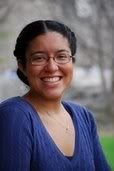 That's the philosophy of award-winning author Kekla Magoon—wouldn't you love to be in her creative writing class? I'm so happy to host her here at my blog—Kekla's a *very* busy woman so I'm very grateful she took the time to answer a few questions about her writing life.
That's the philosophy of award-winning author Kekla Magoon—wouldn't you love to be in her creative writing class? I'm so happy to host her here at my blog—Kekla's a *very* busy woman so I'm very grateful she took the time to answer a few questions about her writing life.
1. Most people know about your award-winning debut novel, The Rock and the River, but you've written a number of non-fiction books as well. Can you tell us about your writing history and how you select and/or develop new projects?
The first books I published, back in 2007, were non-fiction books for the educational market. I contributed about eight titles to a series published by ABDO for middle school libraries. The series had three categories: Essential Lives (biographies), Essential Events (a study of important world history moments), and Essential Viewpoints (a balanced introduction to controversial issues). The publisher developed a list of titles that would be included in each series, so I didn't choose the topics for these books, but sometimes I was offered a choice of which titles I wanted to write. I tended to choose topics related to civil rights (NELSON MANDELA), women's issues (SALEM WITCH TRIALS), and arts or writing (MEDIA CENSORSHIP). All the books had a history component to them, too, which is right up my alley. These for-hire projects were very helpful for me financially for several years as I made the transition from traditional employment to being a full-time author and speaker.
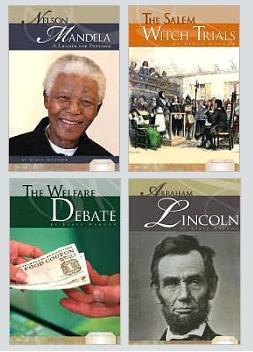 I also am grateful to have had that structured experience writing non-fiction, because I am now looking to do more non-fiction titles of my own creation. I am particularly interested in history, and what I know best is Black History, so I have turned my attention to that for now. This spring, my first royalty-based non-fiction project is coming out from Lerner Publishing. It's called TODAY THE WORLD IS WATCHING YOU and is about the Little Rock Nine, the first black students to integrate Central High School in Little Rock, Arkansas in 1957. It was shortly after the Supreme Court's Brown vs. Board of Education decision ruled school segregation unconstitutional. The Little Rock Nine faced a year of violent torment in school and strong community backlash, and they helped pave the way for generations of black students to be educated alongside white students. It's an amazing story!
I also am grateful to have had that structured experience writing non-fiction, because I am now looking to do more non-fiction titles of my own creation. I am particularly interested in history, and what I know best is Black History, so I have turned my attention to that for now. This spring, my first royalty-based non-fiction project is coming out from Lerner Publishing. It's called TODAY THE WORLD IS WATCHING YOU and is about the Little Rock Nine, the first black students to integrate Central High School in Little Rock, Arkansas in 1957. It was shortly after the Supreme Court's Brown vs. Board of Education decision ruled school segregation unconstitutional. The Little Rock Nine faced a year of violent torment in school and strong community backlash, and they helped pave the way for generations of black students to be educated alongside white students. It's an amazing story!
Next, I am developing a proposal for a non-fiction book on the Black Panther Party for teenagers. It will connect well with THE ROCK AND THE RIVER, and my forthcoming companion novel, FIRE IN THE STREETS. It is very important to me to have such untold narratives from history begin to be shared more with young people.
2. Ella's biracial identity isn't necessarily central to the story in Camo Girl. Talk about your decision as a biracial woman to write about a biracial girl and how your novel "fits" (or not) with other narratives about mixed-race women.
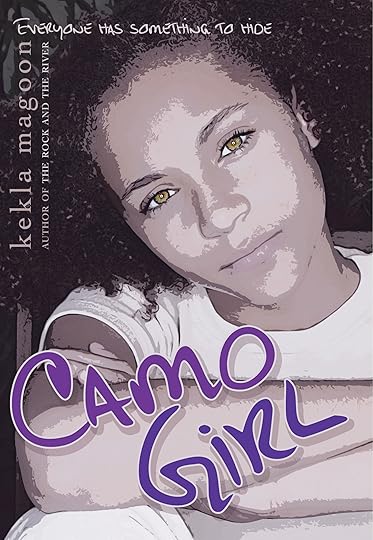 I'm not sure I have a good answer to how CAMO GIRL fits with other mixed-race narratives. Sometimes it's hard to analyze one's own work in those terms, although I do give thought to the place my books might take in the canon of children's literature. I feel it's important for many of my characters to be women of color, but I didn't want to write a story about a girl torn between two races, or heavily struggling with identity on racial grounds. I was hoping to paint a more nuanced picture of what it can mean to be a mixed-race person. In the end, I believe I made her biracial because I am biracial.
I'm not sure I have a good answer to how CAMO GIRL fits with other mixed-race narratives. Sometimes it's hard to analyze one's own work in those terms, although I do give thought to the place my books might take in the canon of children's literature. I feel it's important for many of my characters to be women of color, but I didn't want to write a story about a girl torn between two races, or heavily struggling with identity on racial grounds. I was hoping to paint a more nuanced picture of what it can mean to be a mixed-race person. In the end, I believe I made her biracial because I am biracial.Even though CAMO GIRL is only my second published novel, it's about the sixth novel manuscript that I've personally worked on (some are forthcoming, others are unfinished). Not all the characters in those projects are black or biracial. I'm sharing that because I want to be clear that I've written a fair amount, so it will make more sense when I say that Ella is the character who seems most like me of all the characters I've created. She is NOT me, of course, but I did make a conscious effort to place some of my experiences and perspectives into her. I'm a reasonably self-confident person and I never suffered the extreme social exclusion that Ella faces in the novel. However, her sense of being different and her longing for new friendships are part of my memory of myself in middle school. For those reasons, this novel touches me more personally, and I hope that as such it can let some young struggling girls (of any race) know that there is something beautiful to see when they look in the mirror.
3. I know you're passionate about writing and love being in the classroom. How do you teach someone to become a better writer?
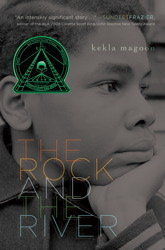 Yes, I do enjoy teaching writing, both to children and adults. With very young children, it's mostly a matter of encouraging them to keep writing and to celebrate their ability to pour creativity into everything. All their writing has energy and honesty and voice. At that point, all they need is time to develop vocabulary, gain life experience, and make observations about it. What I fear happens as kids get older is they begin to doubt their individual voice, which causes them to suppress some of those creative urges. They learn to self-edit in a way that is sometimes too extreme. Teen years are already a vulnerable time, even if you do nothing to explicitly expose yourself; creative expression only compounds that sensitivity. So I think positive reinforcement is key with teenagers, and can be the foundation that will help them grow into successful lifelong writers, if they choose to follow that route. I believe that a person who is confident in her/his voice and who believes s/he has something important to say will be able to develop far better writing skills over time.
Yes, I do enjoy teaching writing, both to children and adults. With very young children, it's mostly a matter of encouraging them to keep writing and to celebrate their ability to pour creativity into everything. All their writing has energy and honesty and voice. At that point, all they need is time to develop vocabulary, gain life experience, and make observations about it. What I fear happens as kids get older is they begin to doubt their individual voice, which causes them to suppress some of those creative urges. They learn to self-edit in a way that is sometimes too extreme. Teen years are already a vulnerable time, even if you do nothing to explicitly expose yourself; creative expression only compounds that sensitivity. So I think positive reinforcement is key with teenagers, and can be the foundation that will help them grow into successful lifelong writers, if they choose to follow that route. I believe that a person who is confident in her/his voice and who believes s/he has something important to say will be able to develop far better writing skills over time.Why? Because a confident writer will learn to accept criticism without taking it personally.
I see writing as a two-fold process: it is simultaneously a personal creative act, and an attempt to communicate. On one side, an author has something to say that s/he feels passionate about. On the other, s/he wants someone to understand that idea and embrace it. I believe the best critical feedback is targeted solely at the second half of that equation. A good teacher won't try to change or criticize what the student writer's core message or story is, but simply provide tools by which the student can improve how s/he communicates. This is why a writer who believes in her/his voice will grow more than one who is insecure, because (perhaps subconsciously) s/he will be able to separate criticism of style vs. substance.
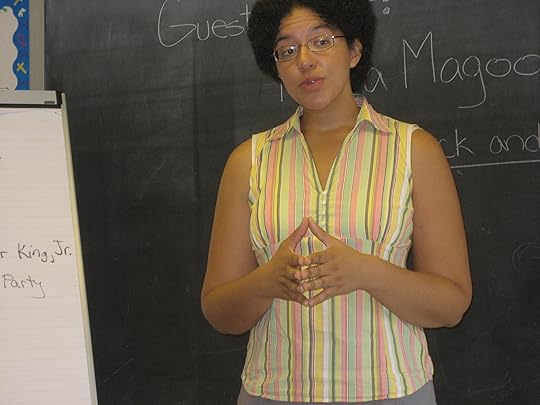
How do I personally strive to make confidence happen for my students? Well, it's a work in progress. As I'm often a guest author, I see my role as inspirer, uplifter. I only give positive feedback. There are no wrong answers in my workshops, ever. Most kids write mostly for school, where there are a lot of rules to writing, like spelling, grammar, and sentence structure. This is necessary training for life but it can get restrictive, and it makes kids feel like there's a right way to write. One of my favorite writing workshops that I offer is called WordPLAY! because I encourage my students to try writing without rules, without purpose, just for fun. The idea is to loosen them up and shake them out of the structures of school writing–the five paragraph paper, the book report, the essay exam, and so on. Spelling errors? Bring them on. Made up words? Why not? They get very creative, and then later we talk about how professional writers do a lot of editing of their work after the first draft. I still try to emphasize that "Nothing you write can be wrong!" (my workshop slogan), but that doesn't mean you can't look for a way to say what you want to say a little bit better.








lifting as they climb
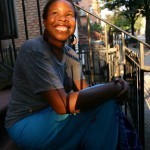 Olugbemisola Rhuday-Perkovich has started an exciting new project for emerging writers—Patchwork Collective Virtual Mentors! Here's a description of the initiative:
Olugbemisola Rhuday-Perkovich has started an exciting new project for emerging writers—Patchwork Collective Virtual Mentors! Here's a description of the initiative:
"The Patchwork Collective for Writers of Color is accepting applications for its Virtual Mentoring Program! Participants will be invited to join an online group and receive personalized advice from mentors on manuscripts and technique (no more than one critique of 10 pages of a long-form work, or 1 PB over the 8 week period), industry- and craft-related information (books, conferences, helpful organizations, Web sites, etc.), and more. Mentors will not be offering referrals to any agents or editors. If you are a writer of color in the "intermediate" stage of your pursuit of a career in children's literature, this is an opportunity for one-on-one online communication with a published children's book author (PB-YA)."
Want to learn more? Swing by The Happy Nappy Bookseller and read a great interview with Gbemi. I'll be on a panel to answer questions about self-publishing, and can't wait to see more aspiring authors breaking into the industry!
Don't forget—it's February and that means it's time for the Brown Bookshelf's 28 Days Later. Stop by every day this month to meet emerging and established authors in the field of African American children's literature.








January 31, 2011
holding on to history
That *was* the title of the article I submitted to School Library Journal; it's now called "A Storied Past," but I'm still happy with how it turned out. It's hard having your words edited when you're used to blogging! But I'm grateful for the opportunity to write about my commitment to the past and the future. These book covers were also cut (from the online version, anyway). I can still remember seeing them in my small public library as a child in Toronto—I remember that poor librarian who tried to get me to read The House of Dies Drear and I refused because of that awful cover…Anyway, this has been a very long day and we're expecting SNOW in the morning. When does spring arrive?








Stranger in the Family
I'm happy to announce the release of the Kindle edition of my book, Stranger in the Family. It is now available in the Kindle store for $3.99—a Black History Month special!
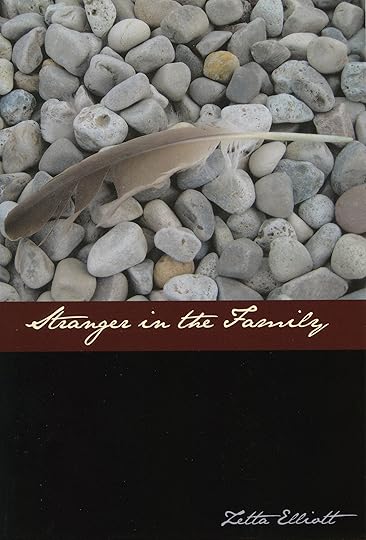 Stranger in the Family is a mixed-media memoir that examines the shifting terrain upon which we negotiate race, kinship, and identity. When my father died of cancer in the spring of 2004, I accepted an offer to teach in the tiny east African country of Djibouti. While abroad, I reflected upon the complicated concept of diaspora, and the alienation I sometimes felt as a foreigner brought to mind a hurtful remark my father once directed at me: "You're a stranger in this family." When my teaching assignment in Djibouti ended prematurely, I returned to Toronto and wrote a collection of essays to more closely examine my "outsider" role within my family and my native land. Stranger in the Family uses essays, photography, short stories, and poetry to trace my evolution as a black feminist, a writer, a daughter, and a Canadian.
Stranger in the Family is a mixed-media memoir that examines the shifting terrain upon which we negotiate race, kinship, and identity. When my father died of cancer in the spring of 2004, I accepted an offer to teach in the tiny east African country of Djibouti. While abroad, I reflected upon the complicated concept of diaspora, and the alienation I sometimes felt as a foreigner brought to mind a hurtful remark my father once directed at me: "You're a stranger in this family." When my teaching assignment in Djibouti ended prematurely, I returned to Toronto and wrote a collection of essays to more closely examine my "outsider" role within my family and my native land. Stranger in the Family uses essays, photography, short stories, and poetry to trace my evolution as a black feminist, a writer, a daughter, and a Canadian.
Here's some of what George Elliott Clarke had to say in his review for The Chronicle Herald (2/8/09):
"…as an African-Canadian African-American, [Elliott] may consider race and racism, as well as cultural differences, from both sides of the 49th parallel, and she is ably suited for doing so…she writes lucid, beautiful, thoughtful, and compelling prose…Elliott does not demonize one locale at the expense of another; rather, she is fastidiously balanced…she insists that her readers view Canada from a black woman's perspective and America from a Canadian perspective. The result is a book that forces one to rethink all the clichés about each nation. But Stranger in the Family isn't mere sociology or self-help therapy either. It is writing that draws comparison to both Bell Hooks and Margaret Atwood, James Baldwin and Mordecai Richler, uniting African-American and Canadian influences."
The Kindle edition of Stranger in the Family is available at Amazon.com and Amazon.uk. If you don't own a Kindle, you can download your free Kindle app here (for PC, Mac, iPhone, iPad, Blackberry, and Android).
The paperback can be ordered from my e-store, in bookstores, at Amazon.com, or at Amazon.ca. Please feel free to circulate this message and share with colleagues who teach Black Studies, Gender Studies, and/or multicultural literature.








January 29, 2011
snow! now silence
Love this video of two fathers reading Ezra Jack Keats' The Snowy Day with their daughters! You can submit a short film, too, at the EJK foundation website.
Snowy days are perfect for staying indoors—curling up with a good book or finishing up a new chapter on my novel-in-progress (nearing 23K!). On Wednesday, I woke to snow falling steadily here in Brooklyn but instead of doing either of those things, I hastily packed my suitcase and rushed to the airport; my plane sat on the tarmac for two hours but finally managed to depart for Boston. Job interviews are anxiety-producing under any circumstances, but try having one during a blizzard! Today will be a day of silence. I met so many kind and interesting people during my three-day trip, including several talkative taxi drivers…it's always interesting how things change once strangers realize I am (or have been) a professor. Today I've got my writer hat on; tomorrow I have to focus on finalizing my syllabus and gearing up for the first day of the spring semester. Here's hoping I haven't lost my touch in the classroom…
Thanks to the ladies at Love YA Lit for sharing this interesting list of "must reads" for teen feminists. Virginia Hamilton seems to be missing—is there anyone else you would add?








January 25, 2011
teen talk
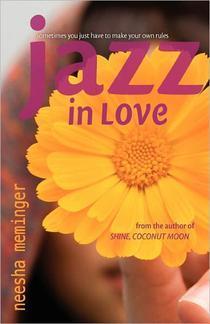 A librarian once told me that Wish didn't sound like YA language, and I took that as a compliment. Then I thought about it and wondered whether my reaction was appropriate—what's wrong with sounding like a teenager? The truth is, I probably didn't sound like a teenager even when I was one, and I don't use much slang in my writing now…but that doesn't mean I don't respect the myriad ways teens have of expressing themselves. While reading Jazz in Love by Neesha Meminger, I found myself faltering whenever the teen characters slipped into "teen talk." But once I let go and let myself focus on what they were saying (more than how they were saying it), it all started coming back to me…those terrible teen years, the angst, the panic, the highs and lows, and battles with parents—I'd never want to be 16 again! Jazz actually reminded me of my friend Fariena; she was tall, thin, beautiful—and Muslim, with strict Guyanese parents who had their hands full with three vivacious daughters. I think, as a group, my friends and I did more pining than playing when it came to boys, so it was great to see a girl like Jazz taking a chance on love—and keeping her grades up at the same time! Neesha has created a genuine teenage girl who's unsure and ambivalent about her feelings, her obligations, and her rights as a young woman. Like Neesha, I'm thrilled that Jazz in Love has been reviewed on the Kirkus Reviews blog, especially after reading this article about self-published authors having to pay for a listing in Publisher's Weekly (with the outside chance of a review). If you're a blogger and would like to review Jazz in Love, be the first to leave a comment and I'll send a copy your way!
A librarian once told me that Wish didn't sound like YA language, and I took that as a compliment. Then I thought about it and wondered whether my reaction was appropriate—what's wrong with sounding like a teenager? The truth is, I probably didn't sound like a teenager even when I was one, and I don't use much slang in my writing now…but that doesn't mean I don't respect the myriad ways teens have of expressing themselves. While reading Jazz in Love by Neesha Meminger, I found myself faltering whenever the teen characters slipped into "teen talk." But once I let go and let myself focus on what they were saying (more than how they were saying it), it all started coming back to me…those terrible teen years, the angst, the panic, the highs and lows, and battles with parents—I'd never want to be 16 again! Jazz actually reminded me of my friend Fariena; she was tall, thin, beautiful—and Muslim, with strict Guyanese parents who had their hands full with three vivacious daughters. I think, as a group, my friends and I did more pining than playing when it came to boys, so it was great to see a girl like Jazz taking a chance on love—and keeping her grades up at the same time! Neesha has created a genuine teenage girl who's unsure and ambivalent about her feelings, her obligations, and her rights as a young woman. Like Neesha, I'm thrilled that Jazz in Love has been reviewed on the Kirkus Reviews blog, especially after reading this article about self-published authors having to pay for a listing in Publisher's Weekly (with the outside chance of a review). If you're a blogger and would like to review Jazz in Love, be the first to leave a comment and I'll send a copy your way!








January 24, 2011
don't be normal…
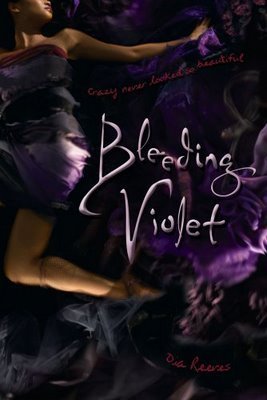 …be paranormal! Join Ari, Doret, and Edi for their first ever African American Read-In event—the people have spoken, and the winner is Bleeding Violet by Dia Reeves. I can guarantee that you have NEVER read anything like this tale of a mentally unstable biracial teen who finds herself living in a Texas town full of portals to another (far creepier) world. Stop by Crazy Quilts for a list of links to interviews and reviews, then go get your copy and be ready for the read-in! Thanks to everyone who voted and remember—it's not too late to invite others to join us for the February discussion.
…be paranormal! Join Ari, Doret, and Edi for their first ever African American Read-In event—the people have spoken, and the winner is Bleeding Violet by Dia Reeves. I can guarantee that you have NEVER read anything like this tale of a mentally unstable biracial teen who finds herself living in a Texas town full of portals to another (far creepier) world. Stop by Crazy Quilts for a list of links to interviews and reviews, then go get your copy and be ready for the read-in! Thanks to everyone who voted and remember—it's not too late to invite others to join us for the February discussion.









